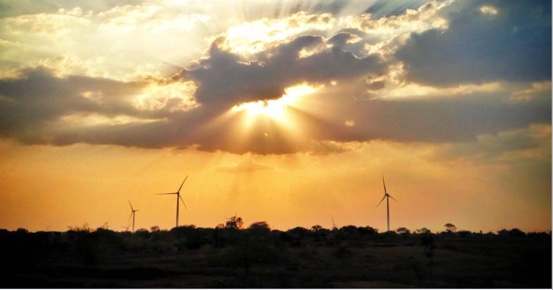Photo credit: EKO Instruments
The global economy has been hit hard due to Covid-19 outbreak and has now posed fresh challenges across all geographies and sectors. The renewable energy sector which had been already grappling with various issues related to delay in funding, uncertainties in government policies, etc. will now face a bigger problem in Covid-19. However, given government impetus on renewable sector in the past and continued focus during uncertain times through necessary regulatory support mechanism, the sector is expected to wither the crisis to a large extent. Government has been even re-considering to uplift subsidies for renewable commodities so as to revive the industry again with full thrust.
The pursuit of India’s ambitious renewable energy mission has been an ongoing continued effort by the government organizations & private companies. The government has been trying to intervene and resolve the structural challenges in order to fulfil their mega target of 175 GW by the end 2022. According to a report by Institute for Energy Economics and Financial Analysis (IEEFA), India is set to achieve 145 GW of renewable energy by close of FY 2021/22.
India faced its first ever and longest (ongoing) lockdown since 23nd March. The phase 1 was set until 14 April, and thereafter entered into Phase 2 extended until 3rd May. There has been a strict guideline by the authorities which clearly state offices and projects to be shut, except the essential goods’ stores to be open having restricted timings. Adhering to the guideline, companies directed all their employees to work from home and connect regularly through online meetings. However, that hasn’t deterred companies’ commercial operations much because they have been able to negotiate with suppliers, and process and place orders, besides doing all the clerical work. This exercise will help them immensely post lockdown to then focus only on project executions and commission them faster. Lockdown 3.0 eased renewable construction projects and in-situ to start operating.
The government plans to have a graded reopening of cities and districts. Albeit, renewable energy construction projects were among the priority and opened first. For the under-construction projects, Ministry of Natural and Renewable Energy (MNRE) has already stated that that the disruption of supply chain due to the spread of Covid-19 should be considered as a case of natural calamity and Force Majeure Clause may be invoked, wherever considered appropriate and completion timelines may be relaxed. Such extension will provide a great relief to the developers and will shield them from missing the deadlines, risk of penalties and encashment of bank guarantees. For the running projects, MNRE has already clarified that the ‘Must Run’ status for RE projects remain unchanged during Covid-19 lockdown period and that RE should not be curtailed but for grid security reasons.
India is an emerging nation and has upcoming several infrastructure projects. Major projects such as airports, meteorology, highways, renewable energy and education/ research will continue to contribute. The utility-scale segment of the market will continue to be dominated by commercial and industrial consumers. Rooftop business seems promising for at least the next few years. For now, we can expect all the existing projects to kick-start once circumstances return back to normal. Several new projects in pipeline are now waiting to be finalised and executed. We have been in regular touch with our distributors, partners and customers. Due to the new normal of working from home, industry people could find free time, and hence our interactions with them have been productive and fruitful. We arranged marketing-related presentations and training for our distributors and customers in these days also. We even have sent offers and received orders (waiting for execution). We maintain that ’EKO is open for business’.
